To prevent bone loss, engage in regular weight-bearing exercises and ensure an adequate intake of calcium and vitamin D. Bone loss can be prevented by committing to a regular exercise routine that includes weight-bearing activities such as brisk walking, dancing, or strength training. Additionally, maintaining a balanced diet rich in calcium and vitamin D is essential for strong and healthy bones.
Incorporating foods like dairy products, leafy greens, and fortified cereals can help meet the body’s calcium needs, while exposing the skin to sunlight or taking supplements can enhance vitamin D levels. By adopting these practices, individuals can significantly reduce the risk of bone loss and maintain optimal bone health throughout their lives.
Understanding Bone Loss: Causes And Risks
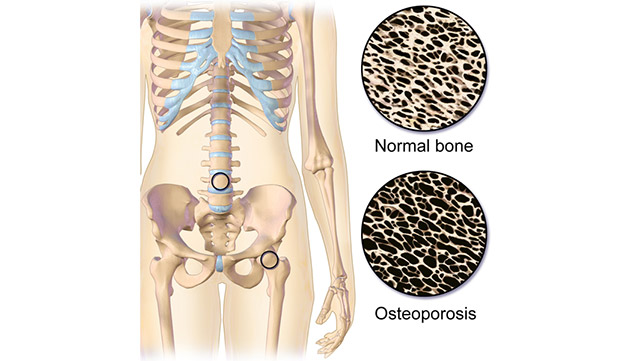
Bone loss, also known as osteoporosis, is a common condition that affects millions of people worldwide. It occurs when the body loses more bone mass than it can replace, leading to weak and brittle bones. Understanding the causes and risks associated with bone loss is essential in taking proactive measures to prevent it.
What Is Bone Loss And Why Is It A Concern?
Bone loss is a gradual process that results in the weakening of bones, making them more prone to fractures and injuries. As we age, our bodies naturally lose bone mass, but certain factors can accelerate this process. Bones serve as the framework for our bodies, providing support and protection for vital organs. Weak bones not only affect our mobility but can also lead to debilitating fractures that may take a long time to heal.
Factors That Contribute To Bone Loss
Several factors can contribute to bone loss, and understanding them is crucial in preventing its onset. Some of the primary factors include:
- Inadequate calcium and vitamin D intake
- Physical inactivity
- Hormonal changes, such as menopause
- Family history of osteoporosis
- Smoking and excessive alcohol consumption
- Certain medical conditions, like rheumatoid arthritis
By identifying and addressing these factors, individuals can reduce their risk of developing bone loss and maintain optimal bone density throughout their lives.
Common Risks Associated With Bone Loss
Bone loss poses numerous risks that can significantly impact a person’s quality of life. Some of the common risks include:
- Increased susceptibility to fractures, particularly in the hip, wrist, and spine.
- Loss of independence due to impaired mobility and reduced physical function.
- Chronic pain and discomfort resulting from fractures and bone deformities.
- Diminished quality of life and decreased overall well-being.
Understanding these risks highlights the importance of early intervention and preventive measures to protect bone health.
The Role Of Diet In Maintaining Strong Bones
Proper nutrition plays a crucial role in maintaining strong and healthy bones. Along with regular exercise, a well-balanced diet that is rich in essential nutrients can help prevent bone loss and reduce the risk of osteoporosis. In this article, we will explore the importance of calcium-rich foods, the role of vitamin D, and other essential nutrients that contribute to maintaining strong bones.
The Importance Of Calcium-rich Foods For Bone Health
Calcium is an essential mineral that is vital for the development and maintenance of strong bones. Including calcium-rich foods in your diet can help ensure an adequate supply of this essential nutrient. Sources of calcium include:
- Dairy products such as milk, cheese, and yogurt
- Leafy green vegetables like broccoli, kale, and spinach
- Fortified foods like tofu and orange juice
- Canned fish with edible bones such as salmon and sardines
- Almonds and sesame seeds
By incorporating these calcium-rich foods into your meals, you can help strengthen your bones and reduce the risk of bone loss.
Vitamin D And Its Role In Bone Health
Vitamin D plays a crucial role in calcium absorption and bone health. It helps the body absorb calcium from the foods we eat, making it an essential nutrient for strong bones. Sources of vitamin D include:
- Sunlight: Spending time in the sun exposes your skin to sunlight, which triggers the production of vitamin D in your body.
- Fatty fish like salmon, mackerel, and tuna
- Egg yolks
- Fortified foods like milk, cereal, and orange juice
Ensuring an adequate intake of vitamin D through sun exposure or incorporating vitamin D-rich foods into your diet can support bone health and reduce the risk of bone loss.
Other Essential Nutrients For Strong Bones
While calcium and vitamin D are key players in maintaining bone health, there are other essential nutrients that contribute to strong bones. These include:
- Phosphorus: Found in dairy products, meat, and whole grains, phosphorus works together with calcium to build and maintain strong bones.
- Magnesium: Foods like nuts, seeds, whole grains, and leafy green vegetables are rich in magnesium, which is essential for bone health.
- Vitamin K: Leafy green vegetables, broccoli, and Brussels sprouts are excellent sources of vitamin K, which aids in bone mineralization.
- Protein: Including sources of lean protein in your diet, such as poultry, fish, legumes, and tofu, can contribute to bone health and maintenance.
By incorporating these nutrients into your diet, you can support the strength and density of your bones, reducing the risk of bone loss and osteoporosis.
Incorporating Weight-bearing Exercises Into Your Routine

One of the most effective ways to prevent bone loss and maintain optimal bone density is by incorporating weight-bearing exercises into your routine. These exercises involve activities that put stress on your bones and stimulate them to become stronger. Not only do weight-bearing exercises provide numerous benefits for bone health, but they also help improve muscle strength, balance, and overall fitness. In this section, we will explore the benefits of weight-bearing exercises for bone density, provide examples of these exercises, and share some tips to help you get started on a regular exercise routine.
Benefits Of Weight-bearing Exercises For Bone Density
Weight-bearing exercises offer several key benefits that contribute to the maintenance of strong and healthy bones. These exercises promote bone density by stimulating the production of new bone tissue and preventing bone loss. By putting stress on your bones, weight-bearing exercises encourage them to adapt and become denser, reducing the risk of fractures and osteoporosis in the long run.
In addition to improving bone health, weight-bearing exercises also have a positive impact on your overall fitness. They help increase muscle strength, enhance balance and coordination, and improve joint stability. Engaging in regular weight-bearing exercises can also aid in weight management, as they burn calories and promote a healthy body composition.
Examples Of Weight-bearing Exercises
There are numerous weight-bearing exercises that you can incorporate into your routine to promote bone health. Some popular examples include:
- Walking: Taking brisk walks outdoors or on a treadmill is an excellent low-impact weight-bearing exercise that is easily accessible.
- Running: If you’re looking for a higher-impact exercise, running or jogging can provide additional stress on your bones, promoting bone density.
- Dancing: Dancing not only adds a fun and creative element to your exercise routine but also puts stress on your bones, making it a great weight-bearing activity.
- Jumping rope: Jumping rope is a high-impact weight-bearing exercise that strengthens bones and improves cardiovascular fitness.
- Hiking: Exploring nature while hiking on uneven terrain adds an element of challenge and stress to your bones, benefiting bone density.
Tips For Getting Started With A Regular Exercise Routine
Starting a regular exercise routine can feel overwhelming, but with the right approach, it can become an enjoyable and beneficial habit. Here are some tips to help you get started:
- Consult with your healthcare provider before starting any new exercise program, especially if you have existing health conditions or concerns.
- Set realistic goals and gradually increase the intensity and duration of your workouts over time.
- Find activities that you enjoy, as this will help motivate you to stick with your routine.
- Consider joining a fitness class or working with a personal trainer to ensure proper form and technique.
- Schedule your workouts in advance and treat them as non-negotiable appointments with yourself.
- Listen to your body and rest when needed, allowing for proper recovery and avoiding overexertion.
The Impact Of Lifestyle Choices On Bone Health
Bone health is influenced by a variety of factors, including our lifestyle choices. Making the right choices can contribute to maintaining strong and healthy bones throughout our lives. In this section, we will explore the impact of certain lifestyle choices on bone health and provide insights on how to prevent bone loss.
The Effects Of Smoking On Bone Density
Smoking not only harms our cardiovascular system and lungs, but it also negatively impacts our bone health. Research has consistently shown that smoking can lead to decreased bone density, increasing the risk of osteoporosis and fractures in both men and women.1
When we smoke, it disrupts the delicate balance between bone formation and breakdown. The harmful chemicals present in cigarettes inhibit the cells responsible for building new bone, while simultaneously stimulating the cells that break down bone tissue.2
To maintain strong bones and prevent bone loss, it is essential to quit smoking. By quitting smoking, you not only protect your cardiovascular health but also give your bones a chance to recover and rebuild their strength. If you need support to quit smoking, reach out to a healthcare professional or consider joining a smoking cessation program.
Limiting Alcohol Consumption For Stronger Bones
Although enjoying an occasional drink may have some health benefits, excessive alcohol consumption can have detrimental effects on our bone health. Studies have shown that heavy alcohol intake can decrease bone density and increase the risk of fractures.3
Alcohol interferes with the normal functioning of our bone cells, impairing bone formation and weakening the skeletal structure. It also affects the absorption and utilization of key nutrients necessary for maintaining healthy bones, such as calcium and vitamin D.4
To support your bone health and prevent bone loss, it is crucial to limit your alcohol consumption. If you choose to drink, do so in moderation – no more than one drink per day for women and two drinks per day for men, as recommended by health authorities. Remember to consult with your healthcare provider if you have specific concerns regarding alcohol and its impact on your bone health.
The Role Of Stress Management In Maintaining Bone Health
Stress is a common part of our lives and can take a toll on our overall well-being, including our bone health. Chronic stress can contribute to bone loss by increasing the production of cortisol, a hormone that negatively affects bone formation and maintenance.5
While occasional stress is normal, managing chronic stress through healthy coping mechanisms is essential for our bone health. Incorporating stress-reduction techniques into our daily routine, such as exercise, mindfulness, and relaxation techniques, can help to mitigate the negative impact of stress on our bones.
Additionally, maintaining a well-balanced diet rich in calcium, vitamin D, and other essential nutrients for bone health, can provide the foundation for stronger bones even during stressful periods.
By making mindful choices, such as quitting smoking, limiting alcohol consumption, and managing stress effectively, we can contribute to maintaining strong and healthy bones throughout our lives.
- Smith, E. L., Gilligan, C., Wright, A. L., Townsend, M. J., & Safe, S. (1978). Ethanol inhibits human osteoblast-like cell proliferation and function in vitro. Life Sciences, 23(5), 531-536.
- Broulik, P. D., Kapitola, J., Pecherstorfer, M., & Růzicka, P. (2003). Smoking, bone mineral density, and osteoporosis. Archives of Gerontology and Geriatrics, 36(1), 1-9.
- Nguyen, N. D., Pongchaiyakul, C., Center, J. R., Eisman, J. A., Nguyen, T. V., & Nguyen, T. V. (2008). Abnormalities in cortical bone structure in male subje…
The Importance Of Regular Bone Density Testing
Regular bone density testing is crucial in preventing bone loss. By identifying early signs of bone weakening, individuals can take proactive steps to maintain strong and healthy bones.
Understanding Bone Density Testing And Its Significance
Bone density testing is a reliable and essential method to assess the strength and density of our bones. It measures how much calcium and other minerals are present in a specific area of bone, providing valuable information about bone health. By understanding bone density testing and its significance, you can take proactive steps to prevent and manage bone loss, ultimately reducing the risk of fractures and osteoporosis.
When And How Often Should You Get Tested?
The frequency of bone density testing depends on various factors such as age, medical history, and individual risk factors. However, it is generally recommended to have a baseline bone density test around the age of 50 for women and around 65 for men. This provides a reference point for future tests and helps identify any initial signs of bone loss.
For postmenopausal women or individuals with higher risks, more frequent testing may be recommended, typically every 2-5 years. Regular testing enables you and your healthcare provider to monitor changes in bone density and take appropriate measures to prevent further bone loss or fractures. Remember, early detection is key to maintaining healthy bones.
Steps To Take If Test Results Indicate Bone Loss.
If your bone density test results indicate bone loss or a higher risk of fractures, there are several proactive steps you can take to prevent further deterioration:
- Consult your healthcare provider: Schedule an appointment to discuss your test results and develop a personalized plan to address your bone health.
- Adopt a bone-healthy diet: Increase your intake of calcium-rich foods like dairy products, leafy greens, and fortified cereals. Consider supplementation if necessary, under the guidance of a healthcare professional.
- Engage in weight-bearing exercises: Regular physical activity, such as walking, jogging, or resistance training, can help strengthen bones and improve overall bone density.
- Quit smoking and limit alcohol consumption: Smoking and excessive alcohol intake can contribute to bone loss, so taking steps to eliminate or reduce these habits can protect your bone health.
- Follow prescribed medications: If your healthcare provider prescribes medications to address bone loss, ensure you take them as directed and follow up regularly.
By taking these steps in response to the results of your bone density test, you can actively manage bone loss and reduce the likelihood of fractures and complications associated with reduced bone density.
Hormonal Changes And Bone Health
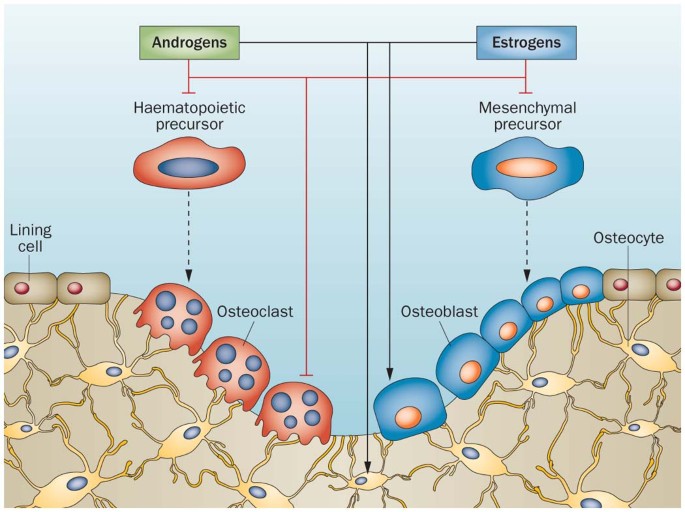
One of the key factors that can contribute to bone loss is hormonal changes. Hormones play a crucial role in maintaining bone health, and any imbalances or changes in hormone levels can have a significant impact on bone density. In this section, we will explore the effects of menopause on bone density, the use of hormone replacement therapy (HRT) as a preventive measure, and strategies for maintaining bone health during hormonal changes.
The Effects Of Menopause On Bone Density
Menopause is a natural phase in a woman’s life that marks the cessation of menstruation. It is during this period that estrogen levels in the body decline significantly. Estrogen plays a vital role in maintaining bone density by regulating the activity of cells responsible for bone remodeling.
With the reduction in estrogen levels, women can experience a rapid decline in bone mass, leading to an increased risk of osteoporosis and fractures. This accelerated bone loss usually occurs in the first few years after menopause. Women may lose up to 20% of their bone density during this time, making it crucial to take preventive measures to maintain bone health.
Hormone Replacement Therapy As A Preventive Measure
Hormone replacement therapy (HRT) is a medical intervention that involves the use of medications containing hormones, such as estrogen and progesterone, to compensate for the decline in hormone levels during menopause. HRT can help prevent bone loss and maintain bone density by replenishing the body with the hormones it needs for healthy bone remodeling.
While HRT has been proven to be effective in reducing the risk of fractures and osteoporosis in menopausal women, it is important to consult with a healthcare professional to determine if it is suitable for individual circumstances. Hormone replacement therapy carries potential risks and side effects, and a thorough evaluation of medical history and considerations is essential.
Strategies For Maintaining Bone Health During Hormonal Changes
Aside from hormone replacement therapy, there are several strategies that menopausal women can implement to maintain bone health and prevent bone loss. These strategies include:
- Engaging in regular weight-bearing exercises such as walking, jogging, or dancing to stimulate bone remodeling and promote bone density.
- Ensuring an adequate intake of calcium and vitamin D through a well-balanced diet or supplementation to support bone health. Foods rich in calcium include dairy products, leafy green vegetables, and fortified foods.
- Avoiding excessive alcohol consumption and quitting smoking, as these habits can contribute to bone loss and weaken bone structure.
- Getting regular bone density screenings to monitor bone health and detect any signs of bone loss at an early stage.
- Considering the use of natural remedies or alternative therapies, such as herbal supplements or acupuncture, under the guidance of a healthcare professional.
By adopting these strategies and incorporating them into a healthy lifestyle, women can proactively protect their bone health and minimize the impact of hormonal changes on bone density.
Medications And Bone Health

When it comes to maintaining healthy bones, certain medications can pose a potential risk. These medications, commonly prescribed for various health conditions, can contribute to bone loss over time. It’s important to be aware of these medications and take necessary measures to prevent or offset medication-induced bone loss.
Common Medications That Can Contribute To Bone Loss
Several medications have been linked to an increased risk of bone loss and fractures. Some of the most common ones include:
- Corticosteroids: These anti-inflammatory medications, commonly prescribed for conditions such as asthma, arthritis, and autoimmune diseases, can interfere with the bone remodeling process and increase the risk of osteoporosis.
- Proton pump inhibitors (PPIs): Widely used to treat acid reflux and peptic ulcers, PPIs can inhibit calcium absorption and reduce bone density, leading to an increased risk of fractures.
- Aromatase inhibitors: Often prescribed as part of breast cancer treatment, aromatase inhibitors can cause bone loss and increase the risk of fractures, particularly in postmenopausal women.
- Anticonvulsant medications: Certain anticonvulsant drugs used to manage epilepsy and other neurological conditions have been associated with reduced bone density and an increased risk of fractures.
Discussing Potential Risks With Your Healthcare Provider
If you are currently taking any of the medications mentioned above or are prescribed new medications, it is crucial to have an open conversation about their potential effects on bone health with your healthcare provider. They can evaluate your individual risk factors and suggest appropriate measures to minimize bone loss.
Alternatives Or Additional Measures To Offset Medication-induced Bone Loss
In addition to discussing medication risks with your healthcare provider, there are alternative strategies and additional measures you can take to offset medication-induced bone loss:
- Calcium and vitamin D supplementation: Adequate intake of these essential nutrients is crucial for maintaining strong bones. Your healthcare provider may recommend specific calcium and vitamin D supplements based on your individual needs.
- Weight-bearing exercises: Engaging in weight-bearing exercises such as walking, jogging, dancing, and weightlifting can help strengthen bones and prevent bone loss.
- Healthy lifestyle choices: Quitting smoking, limiting alcohol consumption, and maintaining a balanced diet rich in calcium, vitamin D, and other nutrients can support bone health.
- Osteoporosis medications: In some cases, your healthcare provider may prescribe medications specifically designed to prevent or treat osteoporosis. These medications can help minimize bone loss and reduce the risk of fractures.
Preventing Falls And Reducing Fracture Risks
Falls are a major concern for individuals at risk for bone loss, as they can often result in fractures and other serious injuries. However, by taking the necessary precautions and implementing simple strategies, you can create a safe home environment, improve your balance through targeted exercises, and utilize assistive devices to minimize the risk of falls and fractures.
Strategies For Creating A Safe Home Environment
Making your home a safer place is crucial in preventing falls and reducing fracture risks. By following these strategies, you can significantly minimize the chances of accidents:
- Remove any hazards, such as loose rugs or clutter that could cause trips or slips.
- Ensure adequate lighting in all areas of your home, especially in hallways, stairs, and entrances.
- Install handrails along staircases and grab bars in bathrooms to provide support and stability.
- Use non-slip mats or rugs in the bathroom and shower to prevent slipping.
- Arrange furniture in a way that allows for clear pathways and easy movement.
Exercises To Improve Balance And Prevent Falls
To maintain good balance and reduce the risk of falls, incorporating targeted exercises into your routine can be highly beneficial. Try incorporating the following exercises into your daily regimen:
- Single-leg stands: Stand on one leg while keeping the other leg slightly bent. Maintain balance for 20-30 seconds, then switch legs.
- Heel-to-toe walk: Practice walking in a straight line, placing the heel of one foot directly in front of the toes of the other foot.
- Yoga or tai chi: Engage in activities that promote flexibility, strength, and balance, such as yoga or tai chi.
- Balance exercises using a stability ball: Sit or stand on a stability ball and perform exercises that challenge your balance, such as seated leg lifts or standing knee raises.
Utilizing Assistive Devices For Injury Prevention
Incorporating assistive devices into your daily routine can provide extra support and help prevent falls. Consider utilizing the following devices:
- Canes or walkers: Use a cane or walker for added stability and support while walking.
- Handrails and grab bars: Install handrails and grab bars in areas where additional support is needed, such as next to the bed or in the bathroom.
- Orthopedic shoes: Choose footwear with proper support and traction to improve stability while walking.
- Fall detection devices: Wear a fall detection device that can automatically notify emergency services in the event of a fall.
By implementing these strategies, exercises, and assistive devices, you can significantly reduce the risk of falls and fractures, promoting overall bone health and well-being.
The Role Of Supplements In Supporting Bone Health
Bone health is incredibly important for overall well-being, especially as we age. One of the key ways to prevent bone loss is through proper nutrition and supplementation. While a balanced diet rich in calcium and vitamin D is essential, some individuals might need additional support in the form of supplements. In this article, we will explore the effectiveness of calcium and vitamin D supplements, as well as other supplements that have potential benefits for bone health. However, it’s important to remember that consulting with a healthcare professional before starting any supplementation regimen is crucial to ensure safety and effectiveness.
Evaluating The Effectiveness Of Calcium And Vitamin D Supplements
Calcium and vitamin D are two of the most well-known supplements for supporting bone health. Calcium is responsible for maintaining the strength and density of bones, while vitamin D aids in calcium absorption. However, it’s important to evaluate the effectiveness of these supplements to determine whether they are suitable for your needs.
Studies have shown that calcium supplementation can be effective in preventing bone loss, especially in individuals who have a deficiency or inadequate dietary intake of calcium. However, it’s important to note that excessive calcium intake can lead to health risks, such as the formation of kidney stones. Therefore, it’s crucial to consult with a healthcare professional to determine the appropriate dosage and duration of calcium supplementation based on individual needs.
Vitamin D supplementation, on the other hand, plays a crucial role in ensuring optimal calcium absorption. Adequate levels of vitamin D help maintain bone density and reduce the risk of fractures. While sunlight exposure is a natural source of vitamin D, supplements can be beneficial, especially for individuals living in regions with limited sunlight or those who have difficulty absorbing vitamin D from food sources. Consulting with a healthcare professional can help determine the appropriate dosage of vitamin D supplementation based on individual factors such as age, skin tone, and sun exposure.
Other Supplements And Their Potential Benefits For Bone Health
In addition to calcium and vitamin D, there are other supplements that show potential benefits for bone health. These supplements include:
| Supplement | Potential Benefits |
|---|---|
| Collagen | Promotes bone strength and flexibility. |
| Omega-3 Fatty Acids | Reduces inflammation and supports bone health. |
| Magnesium | Plays a role in calcium metabolism and bone density. |
While these supplements have shown promise in studies, it’s important to remember that individual results may vary. Consulting with a healthcare professional is vital to determine the appropriate supplementation plan based on your specific needs and medical history.
The Importance Of Consulting With A Healthcare Professional Before Starting Supplementation
Before incorporating any supplements into your routine, consulting with a healthcare professional is essential. They will be able to evaluate your current health status, assess any potential interactions or contraindications, and provide guidance on the most suitable supplements for your bone health needs.
Supplementation should not be seen as a replacement for a healthy diet and lifestyle. It is meant to support and complement your overall bone health efforts. By working with a healthcare professional, you can ensure that your supplementation plan is tailored to your individual needs, helping you maintain strong and healthy bones as you age.
Lifelong Habits For Strong, Healthy Bones
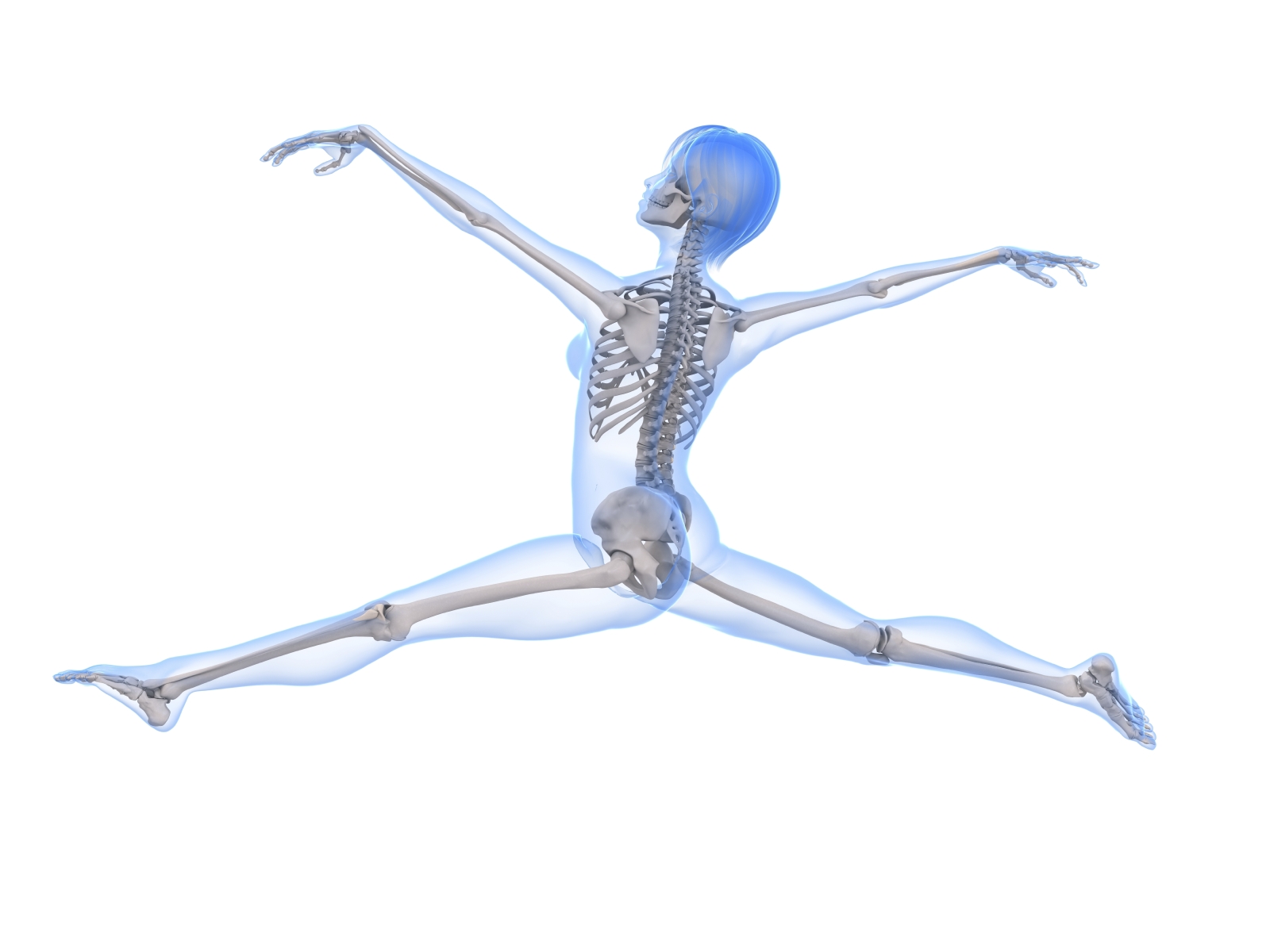
When it comes to maintaining strong and healthy bones, it’s essential to cultivate lifelong habits that promote bone health. By incorporating these habits into your daily routine, you can help prevent bone loss and reduce the risk of fractures and osteoporosis. Here are some habits you should consider:
- 1. Balanced diet: A well-balanced diet rich in essential nutrients is crucial for bone health. Make sure to consume adequate amounts of calcium, vitamin D, and protein. Include foods like dairy products, leafy green vegetables, fish, and fortified foods in your diet.
- 2. Regular weight-bearing exercises: Engaging in weight-bearing exercises can strengthen your bones and improve bone density. Activities such as walking, jogging, dancing, and weightlifting can be highly beneficial for promoting bone health.
- 3. Avoid smoking and excessive alcohol consumption: Smoking and excessive alcohol consumption can have harmful effects on bone health. They can contribute to reduced bone mineral density and increase the risk of fractures. Quit smoking and limit alcohol intake to promote healthy bones.
- 4. Maintain a healthy body weight: Maintaining a healthy body weight is vital for your bones. Being underweight can increase the risk of osteoporosis, while being overweight can put excess pressure on your bones. Strive for a healthy weight through a balanced diet and regular exercise.
- 5. Get enough sunlight: Sunlight is a natural source of vitamin D, which plays a crucial role in calcium absorption and bone health. Spend some time outdoors to allow your body to produce enough vitamin D, especially in the winter months.
Instilling a sense of bone health awareness in younger generations is of the utmost importance. By educating them about the significance of maintaining strong bones from an early age, we can help them develop lifelong healthy habits. Here’s how you can encourage bone health awareness:
- Educate through schools: Collaborate with educational institutions to incorporate bone health education into the curriculum. Teach children about the importance of healthy eating habits, regular exercise, and the consequences of unhealthy behaviors.
- Organize informative sessions: Conduct informational sessions or workshops at schools, community centers, or health clubs to promote bone health awareness. Share valuable insights about maintaining strong bones and preventions against bone loss.
- Lead by example: Be a role model by practicing healthy habits yourself. Show younger generations the positive impact of maintaining strong bones through your actions.
- Use social media: Utilize social media platforms to share bone health tips, facts, and inspirational stories. Reach out to younger audiences through engaging and informative content.
- Collaborate with healthcare providers: Collaborate with healthcare providers to organize bone health awareness campaigns in schools and communities. This collaboration can help spread knowledge and ensure younger generations receive the necessary guidance for lifelong bone health.
The importance of regular check-ups and follow-ups with healthcare providers
Regular check-ups and follow-ups with healthcare providers play a crucial role in maintaining strong, healthy bones. These appointments allow for early detection of any potential bone-related issues and ensure timely intervention. Here’s why regular check-ups are essential:
- 1. Early detection: Regular check-ups can help detect early signs of bone loss or other bone-related conditions, allowing for prompt treatment and prevention of further deterioration.
- 2. Customized guidance: Healthcare providers can provide personalized guidance based on your specific needs. They can recommend exercises, dietary changes, and other preventive measures to maintain optimal bone health.
- 3. Monitoring bone density: Regular check-ups may involve bone density tests to assess the strength and density of your bones. Monitoring your bone density can help identify any changes and guide treatment strategies accordingly.
- 4. Medication management: In cases where medication is prescribed for bone-related conditions, regular check-ups ensure proper management, monitoring of side effects, and adjustments in medication if needed.
- 5. Overall well-being: Regular check-ups are not only focused on bone health but also serve as an opportunity to address any other health concerns and ensure your overall well-being.
By prioritizing lifelong habits for strong, healthy bones, promoting bone health awareness, and attending regular check-ups, you can take proactive measures to protect your bones and maintain optimal bone health throughout your life.
Frequently Asked Questions For Ways To Prevent Bone Loss
Can I Prevent Bone Loss?
Yes, you can prevent bone loss. Follow these guidelines: exercise regularly, especially weight-bearing and resistance exercises. Consume a balanced diet rich in calcium and vitamin D. Avoid smoking and limit alcohol intake. Consult with your doctor for medications and supplements to protect against bone loss.
What Are 5 Ways To Build Strong Bones?
Build strong bones with these five tips: 1. Eat a balanced diet with calcium-rich foods. 2. Get enough vitamin D from sunlight or supplements. 3. Engage in weight-bearing exercises like walking or weightlifting. 4. Limit alcohol and avoid smoking. 5.
Take calcium and vitamin D supplements if needed.
Can You Rebuild Bone Density?
Yes, bone density can be rebuilt. Regular exercise, including weight-bearing exercises, helps stimulate bone growth. Adequate intake of calcium and vitamin D is also essential. It is important to consult with a healthcare professional for a personalized plan.
How Can I Rebuild Bone Loss Naturally?
Rebuilding bone loss naturally is possible through a combination of regular exercise, a balanced diet rich in calcium and vitamin D, and avoiding unhealthy habits like smoking and excessive alcohol intake. Exercise helps stimulate bone growth, while proper nutrition provides the necessary nutrients.
Maintain a healthy lifestyle to support natural bone rebuilding.
Q: Why Is Bone Loss A Concern For Women?
A: Bone loss is a concern for women because they have a higher risk of osteoporosis due to hormonal changes during menopause.
Q: What Are The Common Causes Of Bone Loss?
A: Common causes of bone loss include aging, hormonal changes, lack of physical activity, and certain medical conditions or medications.
Q: How Can I Prevent Bone Loss Naturally?
A: You can prevent bone loss naturally by consuming calcium-rich foods, engaging in weight-bearing exercises, and getting enough vitamin D.
Q: Is Bone Loss Reversible?
A: While complete reversal of bone loss may be challenging, it can be slowed down or prevented through lifestyle changes and appropriate treatments.
Q: Can Stress Contribute To Bone Loss?
A: Yes, chronic stress can contribute to bone loss as it negatively affects hormone levels and can lead to unhealthy lifestyle habits.
Q: Are There Any Specific Foods That Can Help Prevent Bone Loss?
A: Yes, foods rich in calcium, such as dairy products, leafy greens, and fortified foods, can help prevent bone loss.
Conclusion
Taking steps to prevent bone loss is essential for maintaining strong and healthy bones. Incorporating a balanced diet rich in calcium and vitamin D, regular exercise, and avoiding unhealthy habits like smoking and excessive alcohol consumption can significantly reduce the risk of bone loss and related conditions such as osteoporosis.
By making these lifestyle changes, you can ensure the longevity and vitality of your bones, allowing you to lead an active and independent life. Take control of your bone health today and enjoy a future free of bone-related complications.






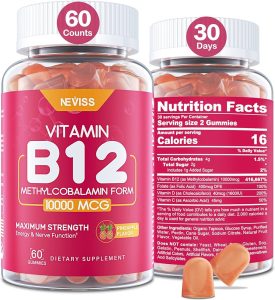
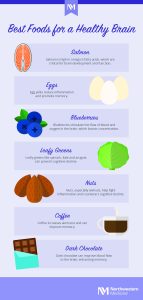

Be First to Comment